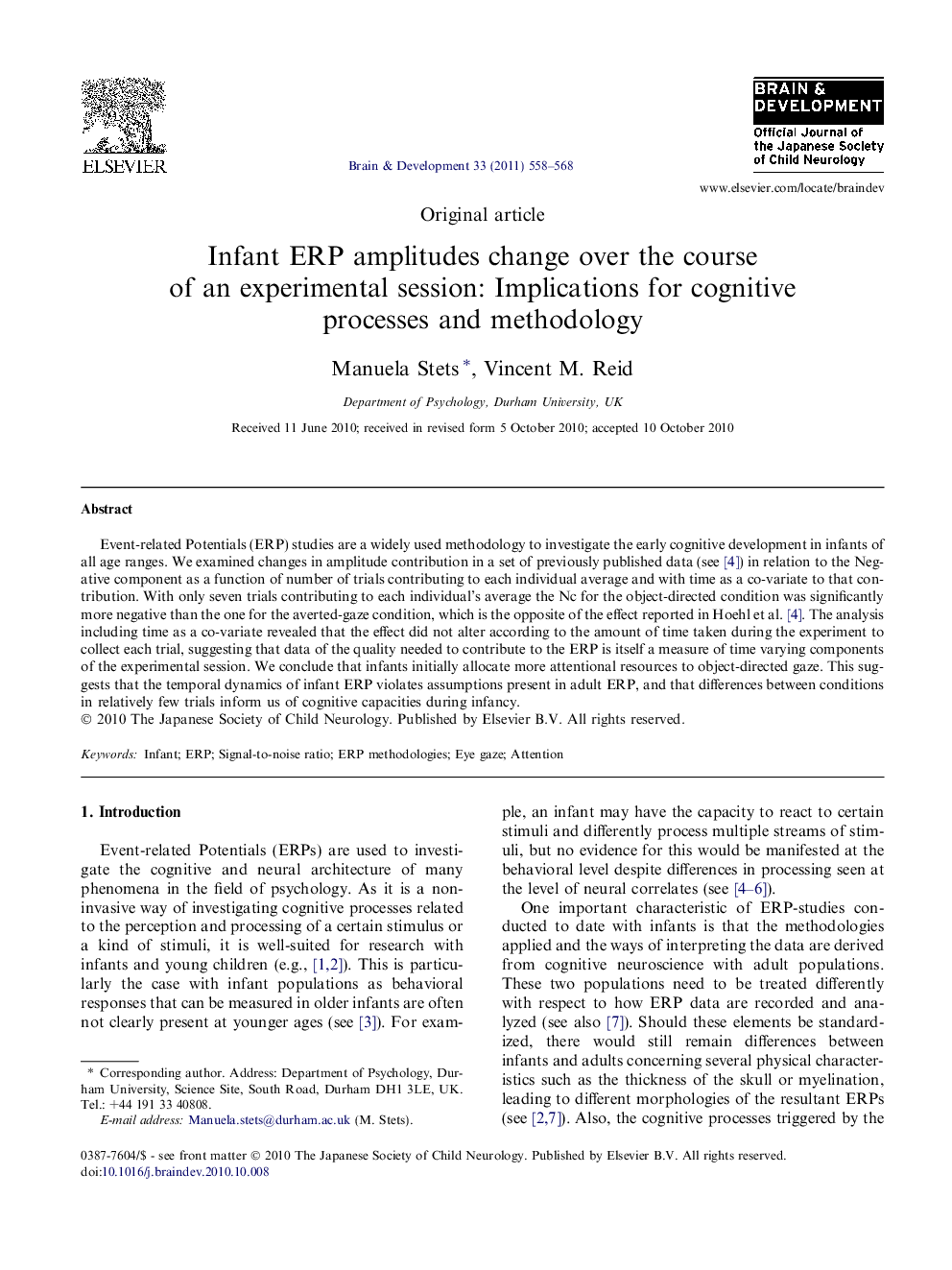| Article ID | Journal | Published Year | Pages | File Type |
|---|---|---|---|---|
| 3037443 | Brain and Development | 2011 | 11 Pages |
Abstract
Event-related Potentials (ERP) studies are a widely used methodology to investigate the early cognitive development in infants of all age ranges. We examined changes in amplitude contribution in a set of previously published data (see [4]) in relation to the Negative component as a function of number of trials contributing to each individual average and with time as a co-variate to that contribution. With only seven trials contributing to each individual's average the Nc for the object-directed condition was significantly more negative than the one for the averted-gaze condition, which is the opposite of the effect reported in Hoehl et al. [4]. The analysis including time as a co-variate revealed that the effect did not alter according to the amount of time taken during the experiment to collect each trial, suggesting that data of the quality needed to contribute to the ERP is itself a measure of time varying components of the experimental session. We conclude that infants initially allocate more attentional resources to object-directed gaze. This suggests that the temporal dynamics of infant ERP violates assumptions present in adult ERP, and that differences between conditions in relatively few trials inform us of cognitive capacities during infancy.
Related Topics
Life Sciences
Neuroscience
Developmental Neuroscience
Authors
Manuela Stets, Vincent M. Reid,
